The Great Alone: A Novel
4.6
-
152,447 ratings
In Kristin Hannah’s The Great Alone, a desperate family seeks a new beginning in the near-isolated wilderness of Alaska only to find that their unpredictable environment is less threatening than the erratic behavior found in human nature.
- #1 New York Times Instant Bestseller (February 2018)
- A People “Book of the Week”
- Buzzfeed’s “Most Anticipated Women’s Fiction Reads of 2018”
- Seattle Times’s “Books to Look Forward to in 2018”
Alaska, 1974. Ernt Allbright came home from the Vietnam War a changed and volatile man. When he loses yet another job, he makes the impulsive decision to move his wife and daughter north where they will live off the grid in America’s last true frontier.
Cora will do anything for the man she loves, even if means following him into the unknown. Thirteen-year-old Leni, caught in the riptide of her parents’ passionate, stormy relationship, has little choice but to go along, daring to hope this new land promises her family a better future.
In a wild, remote corner of Alaska, the Allbrights find a fiercely independent community of strong men and even stronger women. The long, sunlit days and the generosity of the locals make up for the newcomers’ lack of preparation and dwindling resources.
But as winter approaches and darkness descends, Ernt’s fragile mental state deteriorates. Soon the perils outside pale in comparison to threats from within. In their small cabin, covered in snow, blanketed in eighteen hours of night, Leni and her mother learn the terrible truth: they are on their own.
Kindle
$11.99
Available instantly
Audiobook
$0.00
with membership trial
Hardcover
$15.76
Paperback
$9.07
Ships from
Amazon.com
Payment
Secure transaction
ISBN-10
1250229537
ISBN-13
978-1250229533
Print length
576 pages
Language
English
Publisher
St. Martin's Griffin
Publication date
September 23, 2019
Dimensions
5.35 x 1.45 x 8.2 inches
Item weight
1.15 pounds
Popular Highlights in this book
In real life, she saw, it wasn’t like that. It was sadness opening up inside of you, changing how you saw the world.
Highlighted by 5,950 Kindle readers
“The Great Alone,” Leni said. That was what Robert Service called Alaska.
Highlighted by 5,189 Kindle readers
They were trapped, by environment and finances, but mostly by the sick, twisted love that bound her parents together.
Highlighted by 4,879 Kindle readers
Product details
ASIN :
B06Y5WRS2C
File size :
9834 KB
Text-to-speech :
Enabled
Screen reader :
Supported
Enhanced typesetting :
Enabled
X-Ray :
Enabled
Word wise :
Enabled
Editorial Reviews
Praise for The Great Alone:
An instant #1 New York Times bestseller (February 2018) | A 2018 Indie Next Pick
One of...Southern Living's "Books Coming Out This Winter That We Can't Wait to Read"Pop Sugar's "10 Most Anticipated Books of 2018"Working Mother's "Most Anticipated Books of 2018"Brit & Co's "Most Anticipated Books of 2018"Seattle Times' "Books to Look Forward to in 2018"The Everygirl's "10 New Novels to Read this Winter"Refinery 29's"Best Books of February"BuzzFeed's"Most Anticipated Women's Fiction Reads of 2018"
"Featuring a rich cast of characters and elevated by the riveting portrayal of homesteading in Alaska in the 1970s, this is a compassionate story of a family." ―People, "Book of the Week"
"This epic atmospheric novel examines humans' will to endure the unthinkable." ―Real Simple magazine
"There are many great things about this book...It will thrill her fans with its combination of Greek tragedy, Romeo and Juliet-like coming of age story and domestic potboiler. She recreates in magical detail the lives of Alaska's homesteaders...and is just as specific and authentic in her depiction of the spiritual wounds of post-Vietnam America. A tour de force." ―Kirkus (starred review)
"Hannah vividly evokes the natural beauty and danger of Alaska and paints a compelling portrait of a family in crisis and a community on the brink of change." ―Booklist
"Reliably alluring...The Great Alone is packed with rapturous descriptions of Alaskan scenery… Hannah remembers and summons an undeveloped wilderness, describing a gloriously pristine region in the days before cruise ships discovered it." ―New York Times
"In this latest from Hannah, the landscape is hard and bleak but our young heroine learns to accept it and discover her true self...fans will appreciate the astuteness of the story and the unbreakable connection between mother and child." ―Library Journal
"Hannah skillfully situates the emotional family saga in the events and culture of the late ’70s... But it’s her tautly drawn characters―Large Marge, Genny, Mad Earl, Tica, Tom―who contribute not only to Leni’s improbable survival but to her salvation amid her family’s tragedy." ―Publishers Weekly (starred review)
"Hannah turns the written word into wonderful prose...Times are difficult for so many in this novel and Hannah captures their suffering with sensitivity. The author expertly shows how love, death and birth run the full circle of life." ―RT Book Reviews
Praise for The Nightingale:
"Haunting, action-packed, and compelling."―Christina Baker Kline, #1 New York Times bestselling author
"Absolutely riveting!...Read this book." ―Dr. Miriam Klein Kassenoff, Director of the University of Miami Holocaust Teacher Institute
"Beautifully written and richly evocative." ―Sara Gruen,#1 New York Times bestselling author
“A heart-pounding story.” ―USA Today
"A respectful and absorbing page-turner." ―Kirkus Reviews
"Tender, compelling...a satisfying slice of life in Nazi-occupied France." ―Jewish Book Council
“Expect to devour The Nightingale in as few sittings as possible; the high-stakes plot and lovable characters won’t allow any rest until all of their fates are known.” ―Shelf Awareness
"Powerful...an unforgettable portrait of love and war."―People
Sample
CHAPTER 1
That spring, rain fell in great sweeping gusts that rattled the rooftops. Water found its way into the smallest cracks and undermined the sturdiest foundations. Chunks of land that had been steady for generations fell like slag heaps on the roads below, taking houses and cars and swimming pools down with them. Trees fell over, crashed into power lines; electricity was lost. Rivers flooded their banks, washed across yards, ruined homes. People who loved each other snapped and fights erupted as the water rose and the rain continued.
Leni felt edgy, too. She was the new girl at school, just a face in the crowd; a girl with long hair, parted in the middle, who had no friends and walked to school alone.
Now she sat on her bed, with her skinny legs drawn up to her flat chest, a dog-eared paperback copy of Watership Down open beside her. Through the thin walls of the rambler, she heard her mother say, Ernt, baby, please don't. Listen ... and her father's angry leave me the hell alone.
They were at it again. Arguing. Shouting.
Soon there would be crying.
Weather like this brought out the darkness in her father.
Leni glanced at the clock by her bed. If she didn't leave right now, she was going to be late for school, and the only thing worse than being the new girl in junior high was drawing attention to yourself. She had learned this fact the hard way; in the last four years, she'd gone to five schools. Not once had she found a way to truly fit in, but she remained stubbornly hopeful. She took a deep breath, unfolded, and slid off the twin bed. Moving cautiously through her bare room, she went down the hall, paused at the kitchen doorway.
"Damn it, Cora," Dad said. "You know how hard it is on me."
Mama took a step toward him, reached out. "You need help, baby. It's not your fault. The nightmares —"
Leni cleared her throat to get their attention. "Hey," she said.
Dad saw her and took a step back from Mama. Leni saw how tired he looked, how defeated.
"I — I have to go to school," Leni said.
Mama reached into the breast pocket of her pink waitress uniform and pulled out her cigarettes. She looked tired; she'd worked the late shift last night and had the lunch shift today. "You go on, Leni. You don't want to be late." Her voice was calm and soft, as delicate as she was.
Leni was afraid to stay and afraid to leave. It was strange — stupid, even — but she often felt like the only adult in her family, as if she were the ballast that kept the creaky Allbright boat on an even keel. Mama was engaged in a continual quest to "find" herself. In the past few years, she'd tried EST and the human potential movement, spiritual training, Unitarianism. Even Buddhism. She'd cycled through them all, cherry-picked pieces and bits. Mostly, Leni thought, Mama had come away with T-shirts and sayings. Things like, What is, is, and what isn't, isn't. None of it seemed to amount to much.
"Go," Dad said.
Leni grabbed her backpack from the chair by the kitchen table and headed for the front door. As it slammed shut behind her, she heard them start up again.
Damn it, Cora —
Please, Ernt, just listen —
It hadn't always been this way. At least that's what Mama said. Before the war, they'd been happy, back when they'd lived in a trailer park in Kent and Dad had had a good job as a mechanic and Mama had laughed all of the time and danced to "Piece of My Heart" while she made dinner. (Mama dancing was really all Leni remembered about those years.)
Then Dad went off to Vietnam and got shot down and captured. Without him, Mama fell apart; that was when Leni first understood her mother's fragility. They drifted for a while, she and Mama, moved from job to job and town to town until they finally found a home in a commune in Oregon. There, they tended beehives and made lavender sachets to sell at the farmers' market and protested the war. Mama changed her personality just enough to fit in.
When Dad had finally come home, Leni barely recognized him. The handsome, laughing man of her memory had become moody, quick to anger, and distant. He hated everything about the commune, it seemed, and so they moved. Then they moved again. And again. Nothing ever worked out the way he wanted.
He couldn't sleep and couldn't keep a job, even though Mama swore he was the best mechanic ever.
That was what he and Mama were fighting about this morning: Dad getting fired again.
Leni flipped up her hood. On her way to school, she walked through blocks of well-tended homes, bypassed a dark woods (stay away from there), passed the A&W where the high school kids hung out on weekends, and a gas station, where a line of cars waited to fill up for fifty-five cents a gallon. That was something everyone was angry about these days — gas prices.
As far as Leni could tell, adults were edgy in general, and no wonder. The war in Vietnam had divided the country. Newspapers blared bad news daily: bombings by Weatherman or the IRA; planes being hijacked; the kidnapping of Patty Hearst. The massacre at the Munich Olympics had stunned the whole world, as had the Watergate scandal. And recently, college girls in Washington State had begun to disappear without a trace. It was a dangerous world.
She would give anything for a real friend right now. It was all she really wanted: someone to talk to.
On the other hand, it didn't help to talk about her worries. What was the point of confession?
Sure, Dad lost his temper sometimes and he yelled and they never had enough money and they moved all the time to distance themselves from creditors, but that was their way, and they loved each other.
But sometimes, especially on days like today, Leni was afraid. It felt to her as if her family stood poised on the edge of a great precipice that could collapse at any second, crumble away like the houses that crashed down Seattle's unstable, waterlogged hillsides.
Read more
About the authors
Kristin Hannah
Kristin Hannah is the award-winning and bestselling author of more than 20 novels. Her newest novel, The Women, about the nurses who served in the Vietnam war, will be released on February 6, 2024.
The Four Winds was published in February of 2021 and immediately hit #1 on the New York Times, Wall Street Journal, USA Today, and Indie bookstore's bestseller lists. Additionally, it was selected as a book club pick by the both Today Show and The Book Of the Month club, which named it the best book of 2021.
In 2018, The Great Alone became an instant New York Times #1 bestseller and was named the Best Historical Novel of the Year by Goodreads.
In 2015, The Nightingale became an international blockbuster and was Goodreads Best Historical fiction novel for 2015 and won the coveted People's Choice award for best fiction in the same year. It was named a Best Book of the Year by Amazon, iTunes, Buzzfeed, the Wall Street Journal, Paste, and The Week.
The Nightingale is currently in pre-production at Tri Star. Firefly Lane, her beloved novel about two best friends, was the #1 Netflix series around the world, in the week it came out. The popular tv show stars Katherine Heigl and Sarah Chalke.
A former attorney, Kristin lives in the Pacific Northwest.
Read more
Reviews
Customer reviews
4.6 out of 5
152,447 global ratings
BC
5
a sad portrait of a woman who tolerates abuse
Reviewed in the United States on February 25, 2018
Verified Purchase
I was captivated from this novel from the beginning. So many factors are involved: Broken people with broken souls; family abuse; a sad portrait of a woman who tolerates abuse; the effects of abuse on a child; the tragedy of a Viet Nam Vet's post-war mental breakdown of his once good soul. For me, however, the most poignant and educational factors were the descriptions of a wild, desolate, beautiful Alaska in the 1970's. And the stories behind the characters involved who lived there - and played vital roles to the main characters. The tension is palpable. The story is mesmerizing, soulful, heartbreaking, suspenseful. It's one of those rare novels that had me breaking my rule of reading only at bedtime...I had to find out 'what's happening next?".
If the following passages do not whet the appetite, I don't know what will:
"Two kinds of folks come up to Alaska, Cora. People running to something and people running away from something. The second kind-you want to keep your eye out for them. And it isn't just the people you need to watch out for, either. Alaska herself can be Sleeping Beauty one minute and a bitch with a sawed-off shotgun the next. There's a saying: Up here you can make one mistake. The second one will kill you."
"Even her laugh seemed at home here, an echo of the bells that tinkled from wind chimes in front of the shops."
"Leni stared down at the sea, rolling inexorably toward her. Nothing you did could hold back that rising tide. One mistake or miscalculation and you could be stranded or washed away. All you could do was protect yourself by reading the charts and being prepared and making smart choices."
"She was sweating hard, scooping a bucket of water from the creek, slopping it across her boots, when night fell. And she meant FELL; it hit hard and fast, like a lid clanging down on its pot."
"Dad's intentions were good, but even so, it was like living with a wild animal. Like those crazy hippies the Alaskans talked about who lived with wolves and bears and invariably ended up getting killed. The natural-born predator could seem domesticated, even friendly, could lick your throat affectionately or rub up against you to get a back scratch. But you knew, or should know, that it was a wild thing you lived with, that a collar and leash and a bowl of food might tame the actions of the beast, but couldn't change its essential nature. In a split second,, less time than it took to exhale a breath, that wolf could claim its nature and turn, fangs bared."
"A girl was like a kite; without her mother's strong, steady hold on the string, she might just flat away, be lost somewhere among the clouds."
"Fear and shame she understood. Fear made you run and hide and shame made you stay quiet, but this anger wanted something else. Release."
"There it was: the sad truth. Mama loved him too much to leave him. Still, even now, with her face bruised and swollen. Maybe what she'd always said was true, maybe she couldn't breathe without him, maybe she'd wilt like a flower without the sunshine of his adoration."
"Everyone up here had two stories: the life before and the life now. If you wanted to pray to a weirdo god or live in a school bus or marry a goose, no one in Alaska was going to say crap to you. No one cared if you had an old car on your deck, let alone a rusted fridge. Any life that could be imagined could be lived up here."
"It made Leni feel as if she were a coil of rope drawn around a cleat with the wind pulling at it, tugging, the rope creaking in resistance, slipping. If the line wasn't perfectly tied down, it would all come undone, be torn away, maybe the wind would pull the cleat from its home in fury."
"There were a lot of bumper stickers like that out here, deep in Alaska's wild interior, far from the tourist destinations of the coast or the majestic beauty of Denali. Alaska was full of fringe-ists. People who believed in weirdo things and prayed to exclusionary Gods and filled their basements with equal measures of guns and Bibles. If you wanted to live in a place where no one told you what to do and didn't care if you parked a trailer in your yard or had a fridge on your porch, Alaska was the state for you."
"The farther away you got from civilization, the stranger things got. Most people spent one dark, bleak, eight-month winter in Fairbanks and left the state screaming. The few who stayed-misfits, adventurers, romantics, loners-rarely left again."
"Sometimes you had to go backward in order to go forward."
"He hadn't realized how time could unspool the years of your life until for a second you were fourteen again, crying from a place so deep it seemed to predate you, desperate to be whole again."
"Time was not something she usually paid much attention to. On the homestead, the bigger picture mattered-the darkening of the sky, the ebbing of the tide, the snow hares changing color, the birds returning or flying south. That was how they marked the passage of time, in growing seasons and salmon runs, and the first snowfall."
"After that and all the way home, he said nothing, which should have been better than yelling, but it wasn't. Yelling was like a bomb in the corner: you saw it, watched the fuse burn, and you knew when it would explode and you needed to run for cover. Not speaking was a killer somewhere in your house with a gun when you were sleeping."
"Love and fear. The most destructive forces on earth. Fear had turned her inside out, love had made her stupid."
"Five out of every thousand people went missing in Alaska every year, were lost. That was a known fact. They fell down crevasses, lost their way on trails, drowned in a rising tide. Alaska. The Great Alone."
"Someone said to me once that Alaska didn't create character; it revealed it."
"This state, this place, is like no other. It is beauty and horror; savior and destroyer. Here, where survival is a choice that must be made over and over, in the wildest place in America, on the edge of civilization, where water in all its forms can kill you, you learn who you are........You learn what you will do to survive. That lesson, that revelation, as my mother once told me about love, is Alaska's great and terrible gift. Those who come for beauty alone, or for some imaginary life, or those who seek safety, will fail. In the vast expanse of this unpredictable wilderness, you will either become your best self and flourish, or you will run away, screaming, from the dark and the cold and the hardship. There is no middle ground, no safe place; not here, in the Great Alone."
The physical descriptions throughout the novel are ethereal...you can touch and feel and see what the author paints for you.
I think the author did an exquisite job with this novel - my one-time journey through Alaska will never be forgotten.
Read more
108 people found this helpful
Colleen Noyes
5
The Great Alone by Kristin Hannah
Reviewed in the United States on November 2, 2023
Verified Purchase
Look, I’m not gonna lie here. I don’t even know how to put into words what I just read and the 8000 emotions still going through my body. This is the first book I have read by this author and I had no idea what to expect although I had heard she had many great books. It just happened that this book was the one chosen by my book club, and man what a powerful book and story told in a unique, poignant, beautiful, emotional way.
This book will take you on one of the most incredulous journeys you have ever been on. Starting in the 1970s this story begins about a family where the husband has come home from Vietnam and how he is so different than the man who went to Vietnam. What you find throughout the story is that it is about so much more than this one family and the hidden secrets that they have, the things that they endure and more importantly, the things that they survive. You learn about Alaska, and all of its beauty that radiates every day. You are drawn in to feel the darkness that happens in Alaska and what that means not just for this family, but for everybody who lives in the community. You are shown just how important community can be and what other people are willing to do when they believe in something.
Kristin Hannah does an exquisite job of making you feel everything that everybody is feeling. You will find yourself holding your breath on the edge of your seat, waiting to see what comes next. The story has long, lasting love, all the love, Young love, it showcases the love between parents and children in multiple ways in multiple generations, and how there can be so many different outcomes and scenarios.
You will find yourself wrapped up in so much loss, but not always the type of loss you think may be coming. Some may be loss of a person, some may be loss of hope, of faith, of a relationship, the lengths that some people will go to in the name of love are breathtaking, painful, and shocking.
I can only imagine which each person felt throughout this book, and how that affected every choice that they made. You discover that there are always consequences to whatever choice you make sometimes good sometimes bad, but you have to live with that. From chapter 26 to the end of the book in itself is some of the most incredible heart wrenching written words I have ever read in my life. If all of this authors books are like that, I can only imagine months filled with tears. I cried so hard and uncontrollably for the last several chapters that my poor husband had no idea what was going on. While this book is long, I implore you to stick with it and finish it because it is a literary great novel that I hope will someday be made into a movie or a TV series.
Read more
62 people found this helpful
J. Baker
5
Beautifully Written
Reviewed in the United States on June 4, 2024
Verified Purchase
The things I loved about the book: Well written with complex characters; sometimes frustrating in their decisions but also with back stories that helped me understand what drove them. Hannah paints a vivid picture of the Alaskan wilderness that makes me want to visit (but not live there). Even though the book had a satisfying ending for me it wasn’t neatly tied up and left me imagining what life would be like after the story was over. There are many relevant topics woven throughout the story and handled in a way that wasn’t “preachy.” Overall, a great read that was hard to put down.
Read more
2 people found this helpful
Hilda Theriot
5
Best of Kristen Hannah
Reviewed in the United States on June 20, 2024
Verified Purchase
This is such a great read. Love many of her books. Beautifully written and addictive. Was up very late several nights cause so hard to put it down!
S. Smith
4
My First Kristin Hannah Book, But It Won't Be the Last
Reviewed in the United States on June 13, 2024
Verified Purchase
On the first page, 13-year-old Leni wakes to the sound of her parents arguing. Again. The weather in Washington State is dark and threatening—and it turns her father dark and threatening, too. Ernt survived a Vietnamese POW camp and has the physical and psychological scars to prove it. Life with and for Ernt is hard. He can’t keep a job, so the family gets by on Cora’s waitress salary. Leni has gone to five schools in four years. She is the perpetual new girl, the one without friends or nice clothes. She escapes into books and feels she is the only adult in her family.
The larger scene is just as dreary: a nation divided by Vietnam, bombings by radical groups, hijacked planes, the Patty Hearst kidnapping, the Munich Olympics massacre, and Watergate. When Ernt gets a letter from the father of his Army buddy who didn’t make it home, he learns his friend has left him his cabin in Alaska. Without a job or much thought, he moves his family there for a better life.
The cabin is isolated and barely habitable, and with winter coming on, the family is totally unprepared for the realities of life in Alaska. Still, with the help of long-time Alaskan transplants, the family begins to make a place for themselves.
But Ernt’s problems have followed him. As winter arrives, the long, dark days take a toll on Ernt’s mental health, and Leni finds herself in the adult position again, and this time she’s really scared.
The Great Alone is the ugly story of the twisted love and jealousy that fuels an abusive marriage and fails to protect Leni. But it’s also a love letter to Alaska in all its beautiful wildness and to the resilient, modern-day pioneers who left everything behind to create a new life for themselves. The writing is fluid, and the characters are believable.
Read more
Top Kristin Hannah titles
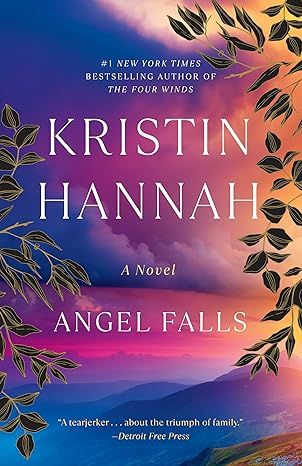
Angel Falls: A Novel
4.3
-
19,320
$2.25
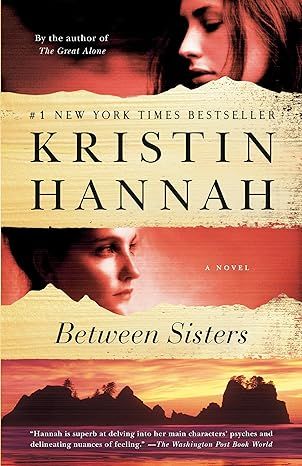
Between Sisters: A Novel (Random House Reader's Circle)
4.5
-
30,096
$8.89
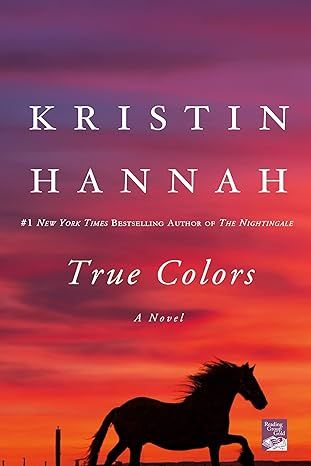
True Colors: A Novel
4.5
-
25,235
$2.14
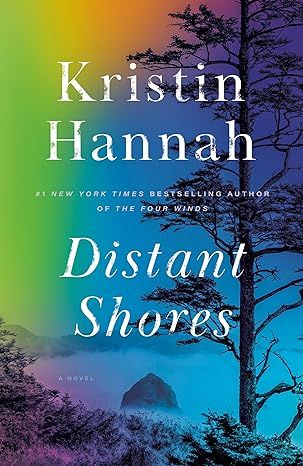
Distant Shores: A Novel
4.3
-
17,870
$8.72
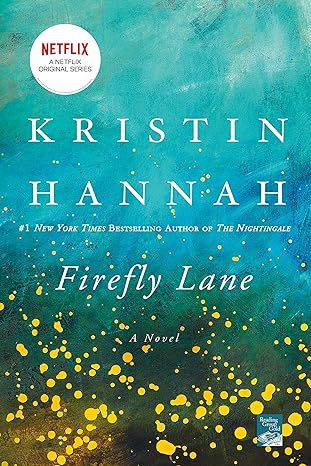
Firefly Lane: A Novel
4.6
-
49,632
$9.06
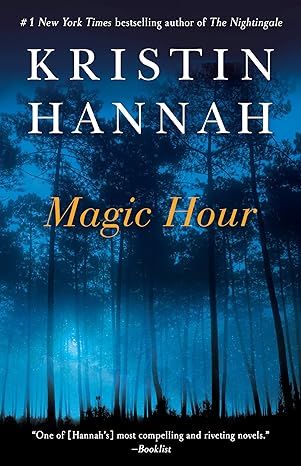
Magic Hour: A Novel
4.6
-
33,187
$8.99
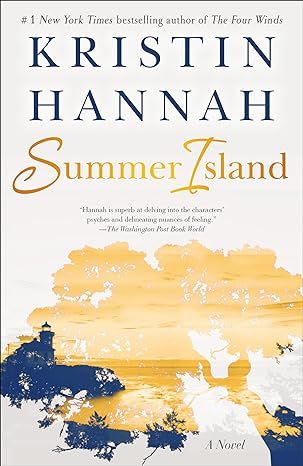
Summer Island: A Novel
4.4
-
28,592
$8.94
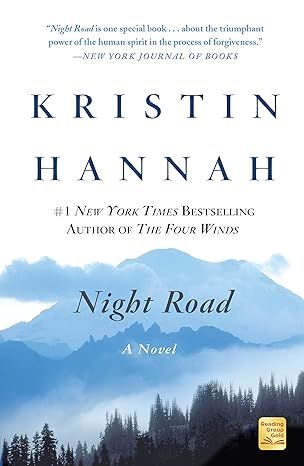
Night Road
4.5
-
37,965
$10.83
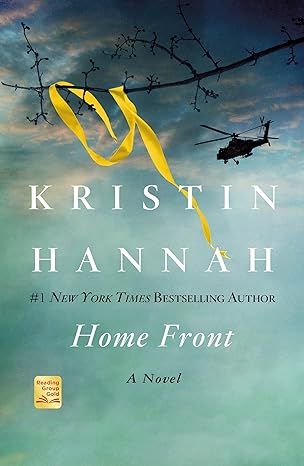
Home Front: A Novel
4.6
-
38,454
$8.00

The Four Winds
4.6
-
156,242
$9.99

Winter Garden
4.6
-
72,838
$7.37

The Nightingale: A Novel
4.7
-
309,637
$8.61
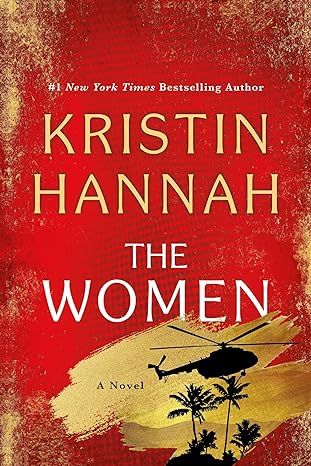
The Women: A Novel
4.7
-
108,768
$14.99
Best Sellers

The Four Winds
4.6
-
156,242
$9.99

Winter Garden
4.6
-
72,838
$7.37

The Nightingale: A Novel
4.7
-
309,637
$8.61

Steve Jobs
4.7
-
24,596
$1.78

Iron Flame (The Empyrean, 2)
4.6
-
164,732
$14.99

A Court of Thorns and Roses Paperback Box Set (5 books) (A Court of Thorns and Roses, 9)
4.8
-
26,559
$37.99

Pretty Girls: A Novel
4.3
-
88,539
$3.67

The Bad Weather Friend
4.1
-
34,750
$12.78

Pucking Around: A Why Choose Hockey Romance (Jacksonville Rays Hockey)
4.3
-
41,599
$14.84

Start with Why: How Great Leaders Inspire Everyone to Take Action
4.6
-
37,152
$9.99

Tomorrow, and Tomorrow, and Tomorrow: A novel
4.4
-
95,875
$13.99

Weyward: A Novel
4.4
-
27,652
$11.99

Tom Lake: A Reese's Book Club Pick
4.3
-
37,302
$15.74

All the Sinners Bleed: A Novel
4.4
-
12,894
$13.55

The Mystery Guest: A Maid Novel (Molly the Maid)
4.3
-
9,844
$14.99

Bright Young Women: A Novel
4.2
-
8,485
$14.99

The Wager: A Tale of Shipwreck, Mutiny and Murder (Random House Large Print)
4.5
-
28,672
$14.99

Hello Beautiful (Oprah's Book Club): A Novel (Random House Large Print)
4.4
-
79,390
$14.99

Small Mercies: A Detective Mystery
4.5
-
16,923
$10.00

Holly
4.5
-
31,521
$14.99

The Covenant of Water (Oprah's Book Club)
4.6
-
69,712
$9.24

Wellness: A novel
4.1
-
3,708
$14.99

The Art Thief: A True Story of Love, Crime, and a Dangerous Obsession
4.3
-
4,805
$14.99
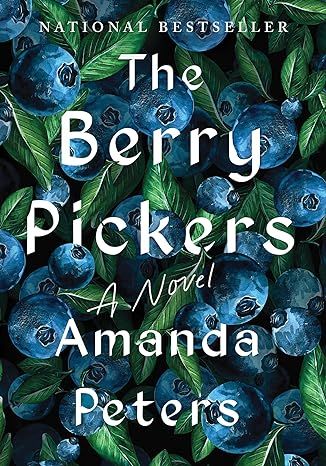
The Berry Pickers: A Novel
4.5
-
14,209
$14.99

Elon Musk
4.7
-
15,272
$16.99

Just for the Summer
4.6
-
19,524
$11.99
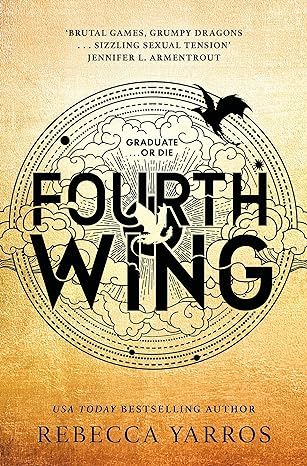
Fourth Wing (International Edition)
4.8
-
206,495
$7.95
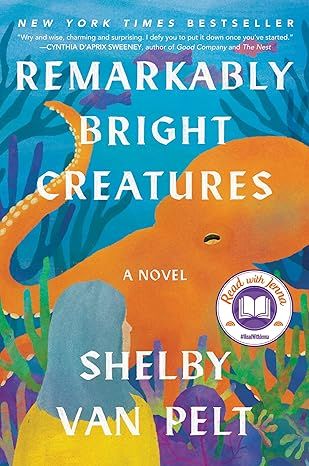
Remarkably Bright Creatures: A Read with Jenna Pick
4.6
-
65,556
$15.80
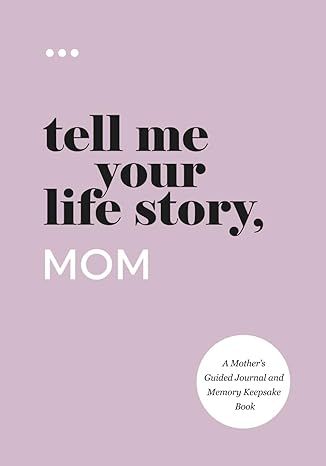
Tell Me Your Life Story, Mom: A Mother’s Guided Journal and Memory Keepsake Book (Tell Me Your Life Story® Series Books)
4.7
-
5,107
$11.24
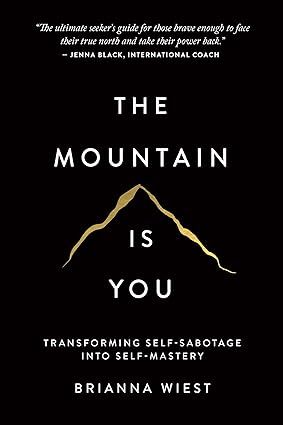
The Mountain Is You: Transforming Self-Sabotage Into Self-Mastery
4.7
-
18,286
$9.99

